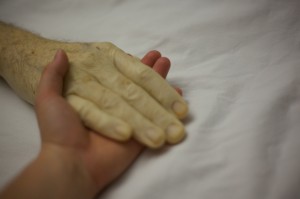-
Architecture
archive
art
Ballard
body
China
cinema
ecology
education
Europe
Ezra Pound
futurology
gothic
image
law
Literature
London
magic
memory
Modern
Modernism
museums
music
novel
performance
photography
poetry
politics
radical philosophy
science
science fiction
Sinclair
Situationism
sound art
Surrealism
technology
television
the avant-garde
The Future
Theory
thomson
time
Urban
visual culture
war
Posts tagged Literature
Martin Willis Professorial Lecture: Imagination & the Sciences, March 26
Tagged as Literature, science, technology

Wednesday 26th March 2014, 6pm
Fyvie Hall, University of Westminster, 309 Regent Street, London W1B 2HW
“Imagination and the Sciences, or, Why Frankenstein May Still Be the Modern Prometheus”
Professor Martin Willis (University of Westminster)
Two distinct but related themes have emerged in recent discussions of the relationship between the sciences and the humanities. First, there has been a sustained rejection in academic communities of the perceived dominance of the ‘two cultures’ debate that split scientific and humanist pursuits in the second half of the twentieth century. Second, and with a very different trajectory, political and institutional rhetoric has driven a wedge between the sciences and the humanities on the grounds of the utility and vitality of the former and the impractical passivity of the latter. Neither these themes, nor the positions taken, are entirely new, but their strange contemporary conjunction provides an opportunity to reconsider the long historical and present relationship between the humanities and the sciences from new perspectives. Looking backwards to the beginning of the nineteenth century as well as to the contemporary world, this lecture will consider the role of the imagination in knotting together the sciences and the humanities. In doing so it will consider the imagination not, as may be expected, as moments of inspiration or flights of fancy, but variously as a method for practice, as a cultural product, as political cache and as a mode of communication. Giving privilege to the imagination from a viewpoint somewhat aslant reveals networks and communities, both actual and of feeling, that illuminate the reductive nature of contemporary neo-liberal discourses and the detrimental effects of these on both the humanities and the sciences.
Professor Martin Willis was appointed to a Chair in Literature, Science and Communication in the Department of English, Linguistics and Cultural Studies in January 2013. Primarily a Victorianist, Professor Willis’s research has focused on the relationships between literary narrative and scientific writing and practice. His work has received international acclaim; his most recent book, Vision, Science and Literature, 1870-1920: Ocular Horizons was awarded both the British Society for Literature and Science Book Prize and the European Society for the Study of English Cultural Studies Book Prize in 2011. Professor Willis is a central figure in the field of literature and science: he was one of the original committee members who formed the British Society for Literature and Science in 2006; directed the Research Centre for Literature, Science and the Arts at the University of Glamorgan from 2006-12; founded the new Centre for Science and the Imagination at Westminster in 2013; and is editor of the Journal of Literature and Science.
Register online at: https://www.eventbrite.co.uk/e/inaugural-lecture-series-2013-2014-imagination-and-the-sciences-or-why-frankenstein-may-still-be-tickets-7899691189

Wednesday 5th March 2014, 6pm
Fyvie Hall, University of Westminster, 309 Regent Street, London W1B 2HW
“Catastrophic Futures and Applied Fiction”
Professor John Beck (University of Westminster)
Asteroid impact, pandemic, earthquake, resource depletion, nuclear war, toxic waste, bioterrorism: the list of potential global catastrophes is long and seemingly unlimited. The scale of such threats is so immense that the possibility of grasping their implications is often beyond everyday comprehension. Yet there are experts and organisations around the world grappling with plausible catastrophic scenarios, from asteroid tracking facilities and geo-engineering enterprises to space colonisation projects and repositories for genetic information and long-term nuclear waste sequestration. Each of these projects requires the extraordinary task of linking the quotidian to the unimaginable, of moving from fact to fiction. How are these links made? How is the fantastic grounded in the material world of real places and people? How does the kind of thinking more commonly found in the arts and humanities contribute to projects involved in catastrophe prediction and management? Writers, artists, and architects are often an integral part of projects dealing with long-term solutions to catastrophic threats. This involvement goes beyond the functional role of illustrating or articulating scientific and engineering proposals, and is intrinsic to the epistemological challenges faced when attempting to imagine and shape notionally unthinkable scenarios. This lecture considers a range of ‘applied fictions’ in order to explore how arts and humanities methodologies are embedded in any critical engagement with the prospect and prevention of future catastrophe.
John Beck joined the Department of English, Linguistics and Cultural Studies at the University of Westminster in 2013. He writes mainly about modern and contemporary art and literature that is concerned with the politics of place. In his first book, Writing the Radical Center (2001), the avant-garde constructivism of American modernist poet William Carlos Williams is read as a means of situating the local – in this case industrial New Jersey – as the bedrock of creative democracy. More recently, Dirty Wars (2009) approaches the permanent militarisation of the Western US after Pearl Harbour through analysis of literary responses to the military-industrial de- and reformation of purloined Western landscapes. Overlapping issues of war, environment and secrecy continue to shape Beck’s research, which is currently focused in two main areas: exposure and hiddenness in landscape photography, and the imagination of catastrophe. His latest work in these areas has been concerned with abstraction in aerial imaging, projects for terraforming Mars, and contemporary ruinenlust.
Register online at: https://www.eventbrite.co.uk/e/inaugural-lecture-series-2013-2014-catastophic-futures-and-applied-fiction-tickets-7899384271
Laura Hird literature research seminar, Weds 19th
Tagged as Literature, politics, Scotland
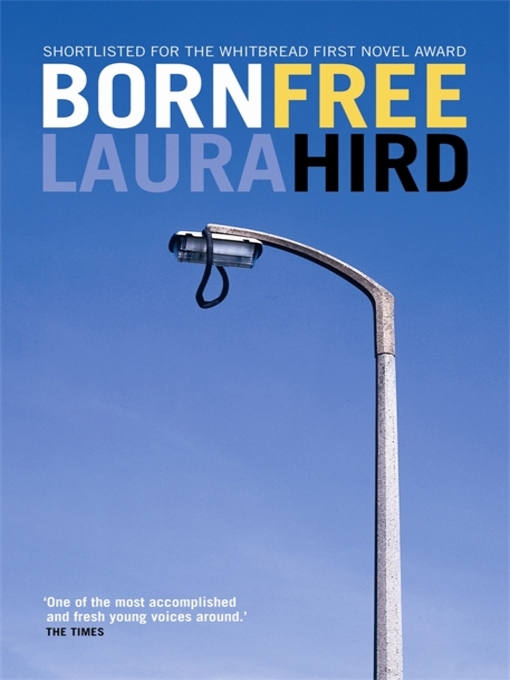
Wednesday 19th February, 4.00pm
Room 106, University of Westminster, 32-38 Wells Street, London W1T
“No Horizons: Queering the Scottish Devolutionary Moment in Laura Hird’s Born Free”
Kate Turner, University of Westminster
Taken from a broader research project entitled ‘The Queer Moment: Post-devolution Scottish Literature’, this paper seeks to queer the nation which, in Lauren Berlant and Elizabeth Freeman’s words, ‘touts a subliminal sexuality more official than a state flower or national bird’ (‘Queer Nationality’ 195). Specifically, my research explores the queer potential that stems from Scottish devolution in 1999 and tracks this through to the referendum on Scottish independence to be held 18th September 2014. The paper considers Scottish devolution a site of rupture for Scottish nationhood; so often imagined into being with reference to its lack or loss of statehood, it is argued that Scotland finds itself at a disorientating moment of introspection in the wake of its own devolution. Within this context the paper offers a queer reading of Laura Hird’s Born Free (1999) using Lee Edelman’s No Future and Judith Halberstam’s In a Queer Time and Place. This analysis examines the breakdown of the nuclear family, uses Edelman’s term ‘reproductive futurism’ to regard devolution as queerly ‘beyond the horizon’, and uses Halberstam’s ideas to explore Hird’s characters as ‘queer subjects’. Through attention to the Scottish devolutionary setting of the text, the paper then draws links between Born Free’s queer aspects and this moment in order to conceptualise the disorientating impact of devolution, and the queer potential of this.

NOTE: Apologies – due to the tube strike, the seminar is postponed. We will arrange with Monika to reschedule this at another time.
Wednesday 5 February, 4pm
Room 106, University of Westminster, 32-38 Wells Street, London W1T
Monika Loewy, Goldsmiths
“The Problem with Unity: Body Identity Integrity Disorder, The Phantom Limb and Maurice Blanchot”
Body Identity Integrity Disorder (BIID) is a condition in which a person desires to amputate a limb because she feels that it does not belong to her body. A phantom limb can be identified when someone who loses a limb feels as though she still has one, which causes her pain. Together, the phantom limb and BIID syndromes foreground examples of individuals who cling to fictional concepts of wholeness as a result of their perceived incompleteness. This paper connects these situations to an idea central to poststructuralist thought: that language is composed of false images of unity that hide its negation, the eternal referent. The paper explores this relationship through the writings of Maurice Blanchot, arguing for a conceptual framework through which language can be seen as a physical and mental coping mechanism – a compensatory system that offers a tentative ‘presence’ to the unknown or the absent signified. Developing these thoughts through Blanchot’s essay “Orpheus’s Gaze” (1982), it is argued that like the text and the limb sufferers, Orpheus lives in a broken body that is both present and absent at once, implicating the referential structures of language in (traumatic) encounter with the physical body.

Criminal Programming: The algorithmic heist and narrative control
Hallvard Haug, Birkbeck, University of London
Wednesday 30 October, 4pm
Room 106, University of Westminster, Wells Street
Historical Novel of the Contemporary Symposium
Tagged as Literature, novel, politics

The Historical Novel of the Contemporary: A Symposium
Tuesday 3rd December, 2-6pm
Carroll / Fletcher Gallery, 56 – 57 Eastcastle Street, London W1W 8EQ
Speakers: Emmanuel Bouju (Rennes), David Cunningham (Westminster), John Kraniauskas (Birkbeck), Fiona Price (Chichester), Leigh Wilson (Westminster)
The subject of a revival in recent decades, in both its ‘literary’ and ‘popular’ forms, for Georg Lukács the historical novel was, above all, that which narrated the ‘pre-history of the present’. Discussing authors ranging from Roberto Bolano to David Peace, Hilary Mantel to Wu Ming, this afternoon symposium considers the historiographic and political forms of the historical novel today as it might narrate the pre-history of our own contemporary.

The list of English Literature and Culture research seminars for this semester has been announced. As usual these will take place on Wednesday afternoons at 4pm in room 106 in the University of Westminster’s 32-38 Wells Street building, London W1T.
October 16th: Jessica Rapson, Kings College London
“Closely Allied Structures: Ecocriticsm, Genocide, and Representation in the wake of the Holocaust”
October 30th: Hallvard Haug, Birkbeck, University of London
“Criminal Programming: The algorithmic heist and narrative control”
November 13th: Sara Dominici, University of Westminster
title t.b.c
November 27th: Chris Lloyd, Goldsmiths, University of London
“Looking at the ‘Southern Visual Legacy’ in Spike Lee’s When the Levees Broke”
Everybody is welcome, but if you’re not a Westminster staff member or student please email Lucy Bond at: l.bond1@westminster.ac.uk
Materialities of Text: New Formations special issue
Tagged as archive, Literature, technology, Theory

A new issue of the journal New Formations is out co-edited by the IMCC’s Sas Mays. Entitled ‘Materialities of Text: From the Codex to the Net’, the collection came out of an online conference hosted by the Institute’s ‘Archiving Cultures’ affiliate. Further information on the issue is available here. You can also download a copy of Sas’s introduction to the issue, co-authored with Nick Thoburn, for free at: http://www.lwbooks.co.uk/journals/newformations/pdfs/nf78 intro.pdf
Fu Manchu in London, Friday 4th October 2013
Tagged as China, Literature, London, novel, Urban
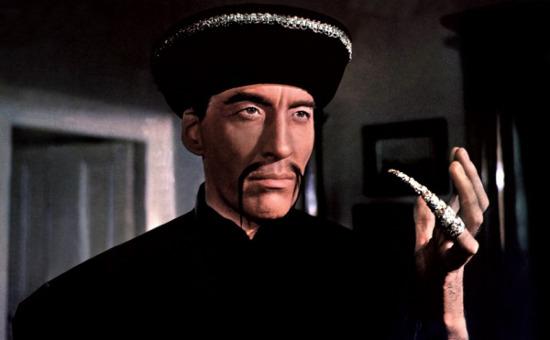
Fu Manchu in London: Lao She, Limehouse and Yellow Peril in the Heart of Empire
Friday 4th October 2013
University of Westminster, 115 New Cavendish Street, London W1W 6UW
We are pleased to announce a special one-day conference on the occasion of three inter-related events this autumn: the publication by Penguin Modern Classics of Lao She’s forgotten masterpiece of 1920s Chinese London, Mr Ma and Son, the launch at the Ovalhouse Theatre of Daniel York’s satiric play, The Fu Manchu Complex (dir. Justin Audibert), and, to mark the centenary of the first appearance of “the Yellow Peril incarnate in one man”, Lord of Strange Deaths: The Fiendish World of Sax Rohmer, a collection of essays edited by Phil Baker and Antony Clayton (Strange Attractor Press, 2013).
The day’s speakers will examine the contexts and enduring fascination of one of the world’s most notorious fictional villains, from the fin-de-siecle racial anxieties and obsessions that spawned Rohmer’s oeuvre to the skewed perceptions that have arisen around his pervasive influence. Of all the overseas Chinese who came to England during the inter-war years, Lao She was the only one to confront the popular Sinophobia endemic in British society directly. Mr Ma and Son: Two Chinese in London (Er Ma, 1929) portrays the pernicious effects of the media on the lives of Chinese people in London. Based on his own experiences in London and written principally for a Chinese readership, the novel gives us a rare, if not unique, picture of the social and commercial affairs of the shop-keepers, café proprietors, and seafarers, that made up the major part of London’s small Chinese community, then based in Limehouse in the East End. Daniel York’s play, The Fu Manchu Complex challenges the resonances of ‘Yellow Peril’ stereotypes for the 21st century in a satirical pastiche of classic British cinema. Five East Asian actors ‘white up’ in the style of slapstick and Victorian music-hall comedy to play the traditional colonials in a murder mystery set in the East End.
Admission is free but please register by emailing Dr Anne Witchard at: anne@translatingchina.info
PROGRAMME
10.00AM – “Some Kind of Admiration or Respect”: Dr Fu Manchu as Hero
Phil Baker
10.45AM – The Case of the Yellow Peril Then and Now
Dr Ross Forman (University of Warwick)
11.30AM – 11.45AM – coffee
11.45AM – Fu Manchu, Orientalism and Arabophilia
Robert Irwin (SOAS /Times Literary Supplement)
12.30PM – 1.30PM – Lunch
1.30PM – Rohmer’s Odyssey
Antony Clayton
2.15PM – Mr Ma and Son: Limehouse and the Yellow Peril genre
Dr Julia Lovell (Birkbeck) in conversation with author Paul French
3.15PM – The Fu Manchu Complex
Daniel York and Justin Audibert will discuss their play, The Fu Manchu Complex, in production at the Ovalhouse Theatre in London.
The Fu Manchu Complex runs at the Ovalhouse, Kennington 1 – 19 October, Tues-Sat 7.45pm BOOK / BOX OFFICE: 020 7582 7680
Death, Aesthetics and Representation, Wednesday September 11 2013
Tagged as art, Literature, photography, visual culture
The final event in the series Death and the Contemporary, ‘Death, Aesthetics and Representation’ will take place on Wednesday September 11 from 7:00pm to 8:30pm, at The Photographers’ Gallery, 16 – 18 Ramillies St, London W1F 7LW, featuring contributions from a panel of keynote speakers including Professor Roger Luckhurst, Dr Timothy Secret, Audrey Linkman and Briony Campbell.
‘Death, Aesthetics and Representation’ is hosted by Georgina Colby in collaboration with Anthony Luvera. Through plenary discussions with keynote writers, visual artists and theorists, ‘Death and the Contemporary’ seeks to explore issues surrounding the representation of death in contemporary culture.
The following links contain further information about ‘Death and the Contemporary’ and ticket sales for ‘Death, Aesthetics and Representation’. Tickets for the event are priced at £7 or £4 concession.
http://thephotographersgallery.org.uk/death-aesthetics-reoresentation
http://www.deathandthecontemporary.com/
Book launch and conference: Ali Smith: Contemporary Critical Perspectives, Sept 7th
Tagged as Literature, novel

We are pleased to announce the book launch of Monica Germana’s edited collection on Ali Smith, which is published this month by Bloomsbury (co-edited with Emily Horton). To mark the publication of the first volume of essays on this important contemporary author, Monica and Emily are organising a one-day conference on 7 September 2013. The conference will conclude with a talk by Ali Smith chaired by Dame Gillian Beer. The book launch will take place in conjunction with the talk at 11 Bedford Square, London WC1B 3RF at 5pm.
You are all warmly invited to the book launch and the following wine reception. Please note that, although the event will be free of charge, places are limited. Please email Emily on emilische@hotmail.com to reserve your place.
More information about the conference can be found on this dedicated website:
http://alismith21cf.wordpress.com/
If you wish to attend the whole conference, registration is open and available from this website:
http://onlinestore.rhul.ac.uk/browse/product.asp?compid=1&modid=1&catid=430
Railways and Fiction
Tagged as Literature, novel, technology
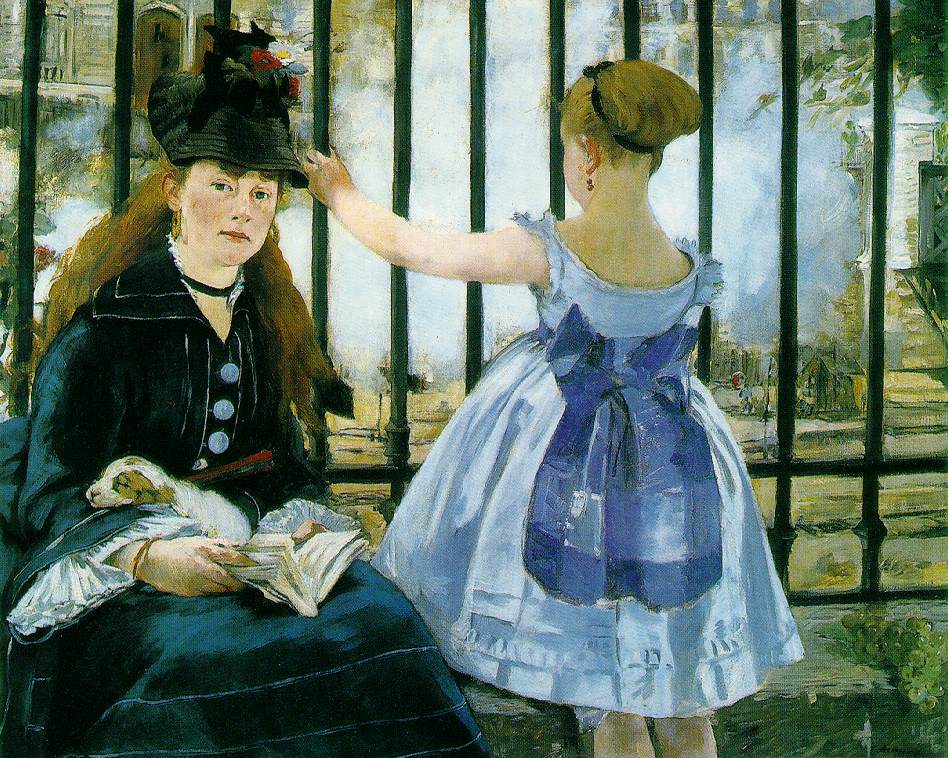
A new piece by Chris Daley in the excellent online journal Alluvium about railway fiction. Here’s the first couple of paragraphs:
Railways are news. On the one hand, they are the source of consternation as above inflation fare rises couple with the perceived drudgery of commuting to characterise the railways as a site of soaring ticket prices and overcrowded, invariably late trains. But this sentiment lives alongside whimsy and romanticism, be it through preservation lines or the restoration of ageing steam engines. This paradoxical image of the railway system is, however, nothing new within the British popular imagination and as Ian Carter (2000) points out, this may have something to do with the railways’ historical link to contested areas of modern everyday life: “So much that we take for granted today was invented or perfected in the nineteenth century to facilitate railways’ development, or to limit their potential for political, fiscal or physical mayhem: standardised time, a disciplined and uniform labour force, large-scale bureaucratic organisation, joint-stock industrial corporations, close State regulation of private capitalists’ activities.”
Similarly, British fiction has maintained an ambivalent relationship with railways. Confronted with a new revolutionary transport system, Victorian novelists offered the most sustained exploration of the potentialities of trains, yet by being, as Nicholas Daly (1999) puts it, ‘the agent and icon of the acceleration of the pace of everyday life’ (463) in the mid-nineteenth century, the railways were also a source for the countless anxieties of industrialisation. Contemporary fiction, in Britain at least, is curiously quiet on the railways, with their appearance often limited to neo-Victorian narratives that attempt to reignite the energy of the steam age. However, to mark the 150 year anniversary of the London Underground, Penguin will release, in March, a series of railway writings that could, perhaps, ignite an imaginative investigation of a transport system that is often seen as mundane, yet is simultaneously a potent symbol of transformation. It is therefore apt to briefly map the terrain of railways in fiction and popular culture in order to anticipate where any future speculation may venture.
Read further at: http://www.alluvium-journal.org/2013/01/12/railways-and-fiction/

The IMCC is delighted to welcome Martin Willis who is joining us this month as Professor in Science, Literature and Communication based within the Department of English, Linguistics and Cultural Studies at Westminster. Martin’s main research interests lie in the intersections between Victorian literature and science, in particular the literary imagination’s response to marginal sciences such as mesmerism and spiritualism, and by literature’s interrogation of scientific sites and conflicts, from the laboratory and seance room to debates in disease theory and vivisection controversies. He is also Editor of of the Journal of Literature and Science, a peer-reviewed journal dedicated to scholarship exploring the cross-fertilisation between literature and science across all literary periods.
Martin’s most recent book, Vision, Science and Literature, 1870-1920: Ocular Horizons, was published by Pickering and Chatto in 2011 and was winner of both the 2011 British Society for Literature and Science Book Prize and 2012 European Society for the Study of English Cultural Studies Book Prize. Drawing on science, technology, and literature, the book aims to analyse the interaction between science, sight and the literary imagination in order to understand better how vision was continually transformed as its boundaries were breached by scientific and technological innovation.
Modernism and Magic
Tagged as cinema, Literature, magic, Modernism

We’re delighted to announce the publication of Leigh Wilson’s new book Modernism and Magic: Experiments with Spiritualism, Theosophy and the Occult (Edinburgh University Press), which we will be launching at the Green Man pub in Riding House Street on Thursday 10th January.
The book presents a new account of the relation between modernism and occult discourses. While modernism’s engagement with the occult has been approached by critics as the result of a loss of faith in representation, an attempt to draw on science as the primary discourse of modernity, or as an attempt to draw on a hidden history of ideas, Wilson argues that these discourses have at their heart a magical practice which remakes the relationship between world and representation. As she demonstrates, the courses of the occult are based on a magical mimesis which transforms the nature of the copy, from inert to vital, from dead to alive, from static to animated, from powerless to powerful. Modernism and Magic explores the aesthetic and political implications of this relationship in the work of those writers, artists and filmmakers who were most self-consciously experimental, including James Joyce, Ezra Pound, Dziga Vertov and Sergei M. Eisenstein.
Reminder: China in Britain #4 this Saturday 8th
Tagged as Architecture, China, Literature, Modernism, visual culture

China in Britain: Myths and Realities
Aesthetics: Visual and Literary Cultures
December 8th 2012, 9:30am – 4:00pm
The Cayley Room, 309 Regent Street, London W1B 2UW
You are warmly invited to the fourth in this University of Westminster/AHRC funded series. The day will present an eclectic programme with presentations on modernist architecture, fashion and literature, chinoiserie, and both literature and photography ‘then and now’. Speakers in the morning are Sarah Cheang (Royal College of Art), Edward Denision (Bartlett, UCL), Patricia Laurence (City University of New York), and David Porter (Michigan). The afternoon sessions will include a presentation by photographer Grace Lau and conversations with Paul French, author of Midnight in Peking (Penguin 2012) and novelist Xiaolu Guo. The day will end with a drinks reception.
The full programme along with abstracts and biogs can be found at: www.translatingchina.info
UPDATE: You can find an excellent account of the day’s event on Rachel Marsden’s blog at: http://rachelmarsdenwords.wordpress.com/2012/12/08/china-in-britain-4/
Anne Witchard on ‘Lucky cat’ show, resonance fm this Saturday
Tagged as China, Literature, London, Modernism

Listen this Saturday 1st December at 3.30pm to our own Anne Witchard on the Lucky Cat show on Resonance FM, hosted by Zoe Baxter. Anne will be talking about her latest book Lao She in London (Hong Kong University Press 2012) which details the time Chinese writer Lao She spent in London in the 1920s. The book reveals Lao She’s encounter with British high modernism and literature from Dickens to Conrad to Joyce as well as his tiem spent in the notorious and much sensationalised East End Chinatown of Limehouse.
If you don’t happen to be in central London, you can listen online at: Resonance 104.4FM.

Wednesday 28th November, 4.00pm – 5.30pm
Room 106, Wells Street, University of Westminster, London W1T
Martin Eve (University of Sussex)
‘Opening children’s eyes’: Overloaded Forms and the Didactic Function
Since Pynchon, the postmodern encyclopaedic form has been recognised as possessing an ethical core. Indeed, Gravity’s Rainbow was only briefly treated solely as a structure of interminable play and quickly found its place, especially in light of Pynchon’s other novels, as a politicised work focusing on the military-industrial complex and contemporary America. It can equally be asserted, though, that the “ethical turn” in literary studies is sited at a specific, historicized moment and is not without its own problems: when we say “ethical”, rather than “moralising”, are we, in fact, merely refusing to recognise the relativity and transitivity of our own moral strictures? To begin to formulate a less innocent, more experienced, new terminology for this mode, this paper will look at two overloaded works, Thomas Pynchon’s Gravity’s Rainbow and Roberto Bolaño’s 2666. Through an analysis of these immense, torrential novels, the paper will unearth their inherent didactic function, examine the way in which they conscript our intellectual capital to pre-dispose us towards their ethics and draw out the place of teaching and learning, through the representation of the university and academia.
Allan Stoekl seminar: Surrealism: Metaphor, Metonymy, and the Question of External Cost, Nov 21
Tagged as ecology, Literature, poetry, Surrealism, Urban
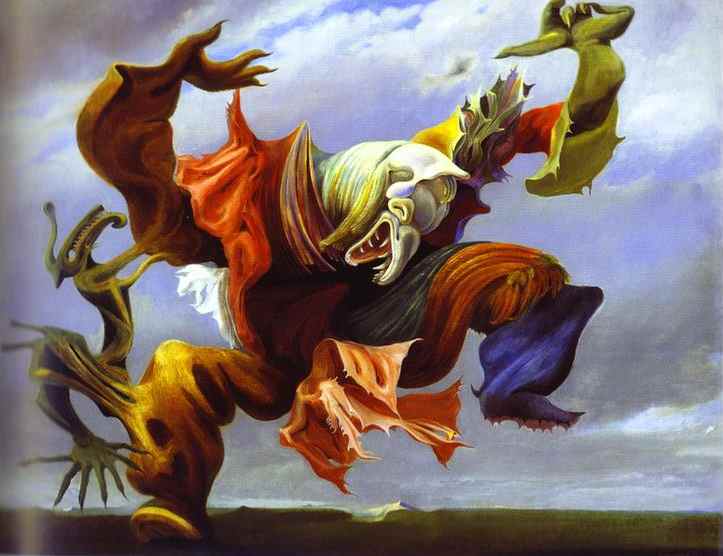
Wednesday 21st November, 4.00-5.30pm
Room 104, Univesity of Westminster, 32-38 Wells Street, London W1T
Professor Allan Stoekl
‘Surrealism: Metaphor, Metonymy, and the Question of External Cost’
Our Visiting Professor in the Institute this year, Allan Stoekl, will be giving a small series of seminars reading work from the book he is currently writing on post-sustainable cities, energy and the avant-garde.
The first of these will be on Wednesday 21st November from 4-5.30 in room 104, in the University’s Wells Street building. If you’d like to attend, do please email David Cunningham: cunninda@wmin.ac.uk
Allan is Professor of French and Comparative Literature at Pennsylvania State University. His many publications include the books Politics, Writing, Mutilation: The Cases of Bataille, Blanchot, Roussel, Leiris and Ponge (University of Minnesota Press, 1985); Agonies of the Intellectual: Commitment, Subjectivity, and the Performative in the Twentieth-Century French Tradition (University of Nebraska Press, 1992); and Bataille’s Peak: Energy, Religion, and Postsustainability (University of Minnesota Press, 2007).

Wednesday 14th November, 4.00pm – 5.15pm
Wells Street, room 106
Bianca Leggett (Birkbeck College, University of London)
Englishness Elsewhere: Exploring Parochialism in the Contemporary English Travel Novel
Ever since the days of Defoe’s Robinson Crusoe, English fiction has repeatedly portrayed travelling protagonists who feel possessed by the need to be English elsewhere, that is, to travel. Terry Eagleton has suggested that the ‘striking number of contemporary novels written in England but set in some non-English locale suggests ‘a sense that from the viewpoint of “creative” writing there is something peculiarly unpropitious about the typical social experience of an industrially declining, culturally parochial, post-imperial nation.’ This paper traces the historical and cultural origins of the myth of the English as a nation that both loves travel and yet remains staunchly parochial, suggesting that contemporary Crusoe-stories are part of how the English have attempted to understand their role in a post-war postcolonial world. It considers how this myth is revisited and revised in three stories of Englishmen in Continental Europe, Ian McEwan’s The Innocent (1990), Julian Barnes’s Metroland (1980) and Geoff Dyer’s Paris Trance (1998). While each novel comments on historically distinct moments in English attitudes to European identity, their similarities suggest a shared desire to critique English insularity. Finally, the paper asks whether the portrait of Englishness which finally emerges is more ambivalent than it first appears, suggesting that its admonitory messages are tempered by elements of postcolonial melancholia and nostalgia.

Wednesday 31st October, 4.00pm – 5.30pm
Wells Street, room 106
Zara Dinnen (Birkbeck College, University of London)
Did we Miss it? The Legacy of Cyberculture in Contemporary Representations of Digital Technology
It seems today the watchword of the contemporary is augmented reality not virtual reality. As we move toward an increasingly ubiquitous digital culture, are we able to begin to historicise late twentieth century projections for a digital future? This talk will discuss how cyberculture might be perceived as being of a distinct technocultural moment, and the ways that might matter for approaches to our digital present.
Further details as usual at: http://seminarserieswmin.wordpress.com/


The Institute for Modern and Contemporary Culture
University of Westminster Department of English, Linguistics and Cultural Studies
32-38 Wells Street, London W1T 3UW. United Kingdom.

